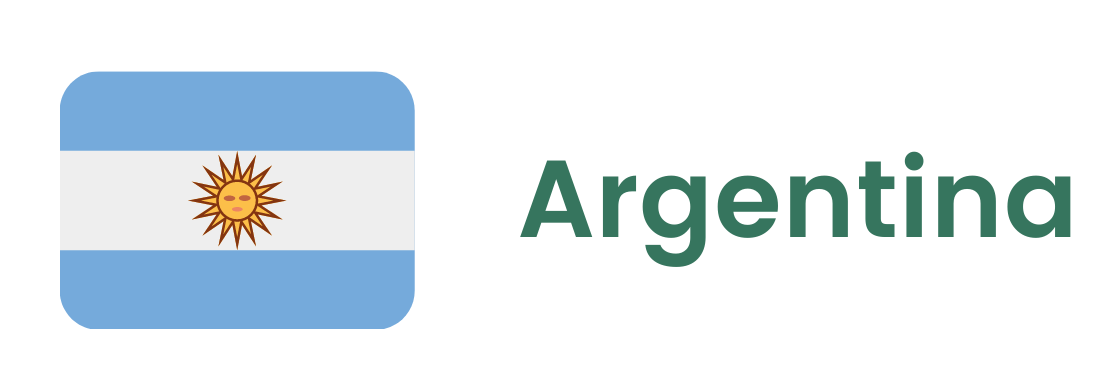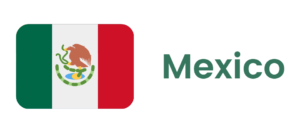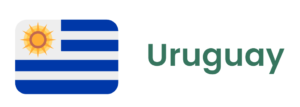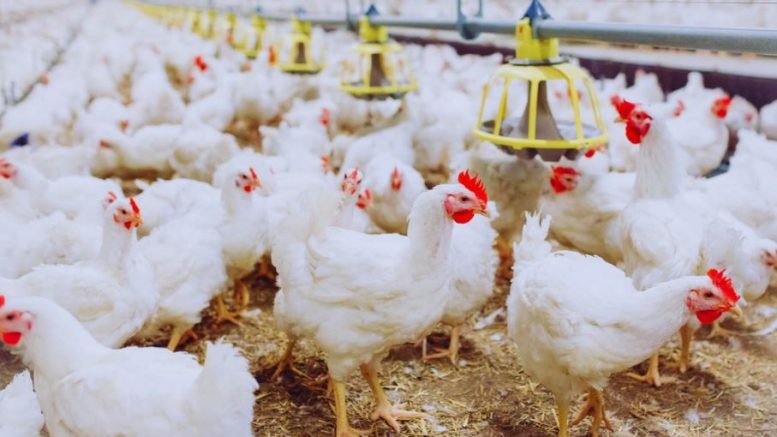Argentina Suspends Poultry Exports After Avian Influenza Case

Eight out of ten farmers choose the dollar as their financing currency. In many cases, financing is provided at zero interest rates and without commissions, and this trend is expected to continue until the end of the year. A year ago, 79% of credit agreements were denominated in pesos and only 21% in “hard currency.” (Nera)
Inflation in Argentina reached 1.9% in July and fell to 36.6% in 12 months. The result is in line with economists’ expectations, representing an acceleration from the 1.6% recorded in June. (Indec)
Health inspection operation resulted in the seizure of more than three tonnes of Brazilian mangoes, transported without the required documentation. According to Argentina’s National Service for Agrifood Health and Quality, 1,512 boxes of mangoes were seized, totaling 30,240 kg. The cargo was destined for the city of Timbo Viejo, in the province of Tucumán. (Senasa)
According to Gustavo Idígoras, president of CIARA-CEC, the permanent reduction in agricultural tariffs has meanwhile raised soybean and corn prices and should expand the planting area. Idígoras pointed out that the predictability created “changes the rules of the game” and influences production decisions, in addition to considering the measure a political maneuver in an election year. Regarding the Mercosur-EU agreement, which may come into force in 2026, Idígoras explained that 90% of products will be exempt from tariffs, while soybean and derivatives will have tariffs taxes of up to 14% gradually reduced over four years, emphasizing that the sector should defend it for ensuring clear rules and limiting political interference. (CIARA-CEC)
Argentina leads global peanut exports with 23% of the market, sales of US$ 1.19 billion in 2024, and 322,000 tonnes exported in the first half of 2025. Production of 1.48 million tonnes on 434,000 hectares. Almost all production is exported. (Ministry of Agriculture, Livestock and Fisheries of Argentina; Indec)
Preventive suspension of poultry meat and by-product exports after confirmation of a case of highly pathogenic avian influenza in Buenos Aires. A three-kilometer sanitary control zone has been established, with culling of birds, safe disposal, and disinfection of facilities. If there are no new outbreaks and 28 days have passed since the culling and disinfection, the country may reapply for recognition as avian influenza-free and resume exports. (Senasa)

Impact of the US 50% tariff on meatpacker Minerva should be neutral, according to Edison Ticle, CFO. According to Ticle, Minerva has the capacity to redirect its export volumes from Brazil to the US through other countries, such as Argentina, Paraguay, and Uruguay. (Minerva Foods)
Frost recorded in the Cerrado Mineiro region on August 11th is expected to reduce the region’s next coffee harvest by approximately 412,000 60-kg bags, or 5.5% of production potential. According to the Cerrado Coffee Farmers Cooperative, the region of Patrocínio, Brazil’s largest coffee-producing municipality, and other cities such as Ibiá and Araxá were the most affected. (Expocacer)
Administrative Council for Economic Defense has determined that soybean traders must suspend the “Soy Moratorium” agreement within 10 days, under penalty of heavy fines. The private pact, which meanwhile has been in place for two decades, seeks to protect the Amazon rainforest by preventing soybean traders from buying from farmers who have practiced deforestation in the region after July 2008. However, the pact represents a possible violation of Brazilian competition law. (CADE)
China and the European Union will resume purchases of chicken and chicken products from Brazil, as Brazilian authorities have controlled an outbreak of avian flu that triggered trade bans in the second quarter, according to BRF. The case of avian flu in Brazil at a commercial farm in May triggered a series of trade restrictions, which were gradually lifted by importers as Brazil brought the outbreak under control. The government declared Brazil free of the highly contagious disease in June. (BRF)
Brazilian Specialty Coffee Association released a statement in support of the Brazil Sovereign Plan, announced by the federal government in response to the 50% tariff imposed by the US on Brazilian products. For the entity, this is a set of necessary actions to address the immediate effects of the measure on the sector. “BSCA understands that these are important measures in the very short term, which will provide guidance for the segment in facing the crisis.” (BSCA)
The trade balance registered a surplus of US$ 1.090 billion in the third week of August. According to data from the Foreign Trade Secretariat of the Ministry of Development, Industry, Trade, and Services, this figure was achieved with exports of US$ 6.632 billion and imports of US$ 5.542 billion. The accumulated surplus for the month of August is US$ 3.048 billion. For the year, the surplus totals US$ 40.030 billion. Agricultural exports grew by almost 15%, totaling US$ 3.5 billion. (MDIC)
China increased soybean imports from Brazil by 13.9%, totaling 10.39 million tonnes, representing 89% of the country’s total purchases, while purchases from the US fell 11.5% to 420,900 tonnes. The overall volume of imports reached 11.67 million tonnes, a record for the month. (General Administration of Customs of China)


Increased tariffs from the US to Brazil may lead to more Brazilian meat being sent to Chile, putting pressure on domestic prices. Brazil accounts for 48% of imports, domestic production supplies 30% of consumption and the Chilean Meat Farmers Federation is calling for equal standards between domestic and imported meat. (Fedecarne)
Chilean National Agricultural Research Institute held a meeting in Mexico to strengthen scientific, technological and commercial cooperation, including a meeting with the National Institute of Forestry, Agricultural, and Livestock Research and a visit to the Sanjaya Rajaram Experimental Station of the International Maize and Wheat Improvement Center. National Director Carlos Furche highlighted science, innovation, and international cooperation as pillars for addressing production and environmental challenges. (INIA; Cimmyt)

Tomato exports recorded their biggest drop since 2012, with a variation of -19.2% between January and June, compared to the same period in 2024. This scenario comes in the context of the United States’ decision last July to terminate the 2019 Tomato Suspension Agreement, and since then, an anti-dumping duty of 17.09% has been applied to Mexican tomato imports. (Banxico)
Mexico aims to reach a target of 25 million tonnes of white corn by 2030, working with 2.5 million small and medium-sized farmers. The government emphasizes each farmer must increase productivity by around 1 tonne per field to ensure food sovereignty and reduce external dependence. (Sader; Mexicampo)

Paraguay’s largest forestry exports for the year were recorded in July, with 19,984 tonnes and revenues of US$ 9.97 million, up 7.7% compared to 2024. The main destinations were the United Kingdom, the United States, Germany, Brazil, and Spain. (BCP; Fepama)
Soybean seed production for the 2025/26 season covers 90,970 hectares and 144 varieties, with planting extended until March 10 due to weather conditions. Twenty-three of the 37 producing companies are members of the Paraguayan Seed Farmer Association, representing 94% of the area, and are undergoing final certification and quality control processes to ensure high-yield seeds. (Aprosemp; Production Management Unit)


Congress approved the new Agrarian Law, reducing income tax from 29.5% to 15% for ag exporters for the next 10 years. The law benefits small farmers and agribusinesses. The Fiscal Council and the International Monetary Fund warn that the measure could generate an estimated annual fiscal shortfall of US$ 545 million. (IMF; Government of Peru)

Area under rice cultivation is expected to fall between 15% and 20%, from 180,000 to around 155,000 hectares, due to water shortages in reservoirs and a drop of more than 30% in international prices, said Juan Miguel Silva, vice president of the Rice Farmers Association. According to him, farmers’ income has fallen from US$ 17 to US$ 11.50 per bag, while costs remain high, between US$ 1,800 and US$ 2,000 per hectare, which compromises the economic viability of the crop. Silva added that if there is not enough rain, part of the areas may be converted to livestock or summer crops. (ACA)
In 2024, Uruguay exported US$ 227 million of ag products to the Association of Southeast Asian Nations, an increase of 8.5% compared to 2023 and resumed sales of soybeans and wheat to the region. Thailand accounted for 31% of exports, Vietnam 23%, and Singapore 21%. (Uruguayan Exporters Union)
Uruguayan Rural Federation requested solutions for the precarious road infrastructure, which has not kept pace with the fivefold increase in agricultural production over the last two decades, and proposed to the Minister of Transport, Lucia Etcheverry, that the most used rural roads be transferred to the ministry for better maintenance. It also warned of an increase in cattle theft and a feeling of insecurity, despite the creation of the National Rural Security Directorate. (FRU)

READ MORE:

